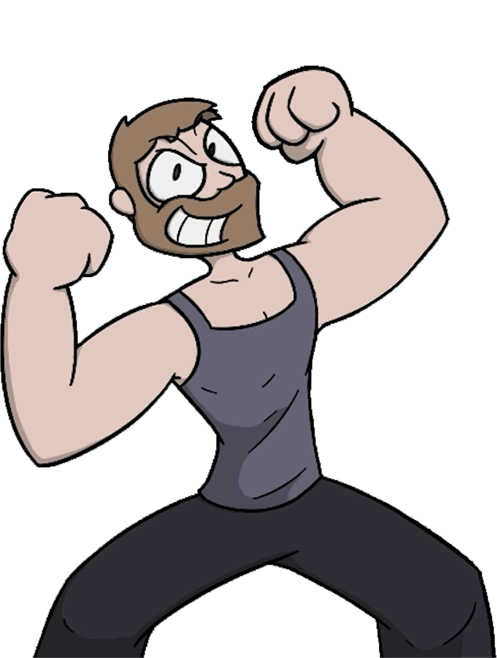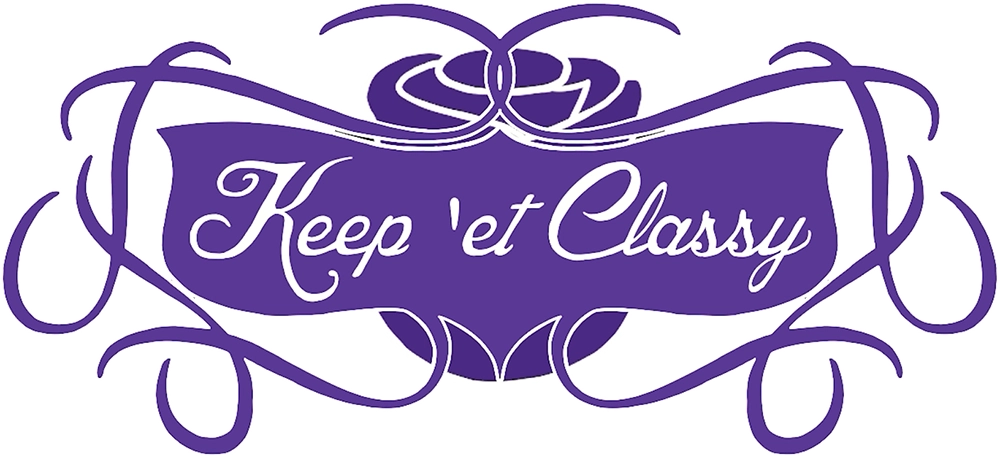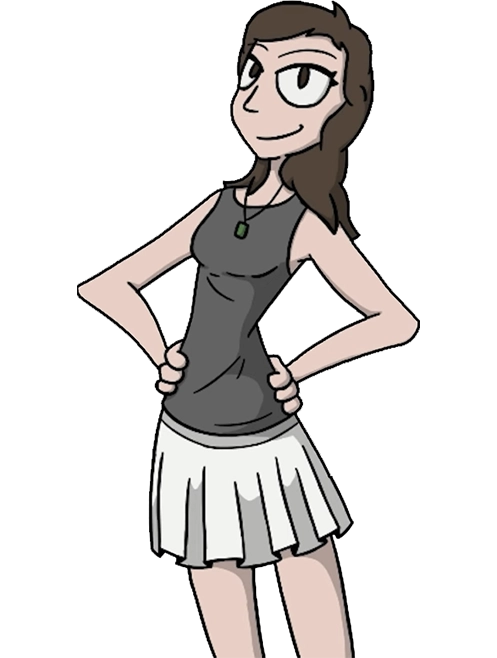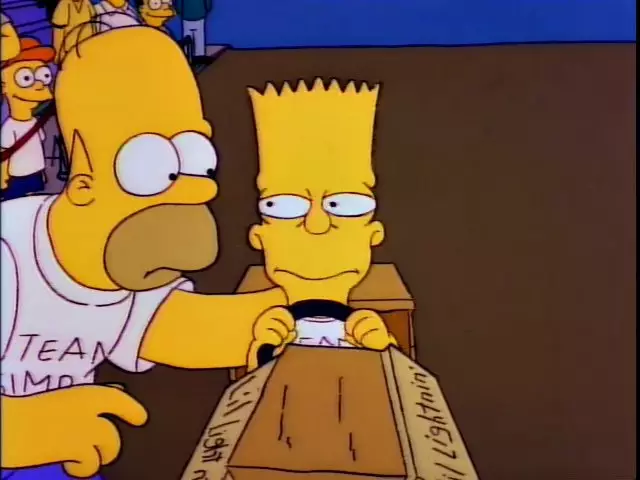My Recollection.
Edgar ALLENpoe! MENDOZAAAAAAAAAAA! The driver is essentially a ballast.
Queensland develops urban centres the same way a ginger tans: splotches of enthusiastic attempts one could mistake for the real thing were they not surrounded by the truth. From the right angles, Brisbane can be mistaken for a city, but it only takes a moment’s travel in any direction to shatter that illusion. The suburbs offer even less resistance.
My house in Goodna didn’t bother with even a token effort. It backed right onto bushland, an odd stretch of it between housing sprawls, and one of my neighbours was a Vietnamese farm. Now it’s some kind of Samoan church, but back then it was several fields worth of possibly banana trees and a variety of other more mysterious vegetables. Some disarmingly flaccid lines of barbed wire strung between garden stakes separated the street from a path into the farm. I never saw anybody use it.
I don’t know how much has changed, but back then, every child had some kind of bike. I presume this was simply because there was less to want, as nothing shines a light on the meaninglessness of existence more than the ability to travel while having nowhere to go. The depressingly poetic dual dead ends of Bailee street were mostly it, any farther necessitated a reason in a place where that was in short supply.
The poorer kids had bikes with foot brakes. Our bike frames were harvested from scrapyards and had to be torn from the hands of one of the shrieking yard goblins that lived among the wrecked cars and piles of crutches. They were simple enough, pedal backwards and the rear wheel would lock up. A perfectly fine design, unless your bike chain was a few links too long. Like mine was.
The kid across the street and up a bit was named Michael. He was a picture-perfect specimen of the suburb: poverty abs, a haircut somewhere between mullet and bowl that made him resemble a feral Yahoo Serious, and an unwavering belief that Aborigines could smell blood in water. I don’t think he owned a shirt, and his gameness to try some of the more daring neighbourhood acts suggested his home life wasn’t that great. His bike had been broken for a while, so, one day, he borrowed mine.
My life has been defined by things not working quite like they should. Most things I owned growing up had little idiosyncrasies that had to be worked around. Door handles that needed to be jiggled. Game consoles that only worked on a certain angle. My brain. You get so used to these things that you become blind to them. In a million years, it never would have occurred to me to warn Michael that the chain on my bike was a bit long.
Loose bike chains are not uncommon in the feral enclaves as most bikes are cobbled together like a wasteland marauder’s nitro truck. They added a “maybe” element that the already dangerous BMX bike didn’t really need. A significant jolt in any direction can knock the chain up off of the gear teeth which, in most cases, means you won’t be able to pedal. In some cases, in my case, it also means you won’t be able to brake. I found this out the hard way but had the good fortune to find out where I could steer up a hill to stop safely.
We were riding bikes. Up one end of the street and back down to the other. Some races would add a little meaning to the activity, occasionally someone would attempt a mono (wheelie), but it was otherwise just goldfish circling in a bowl. Michael was watching because his bike was broken. When we got back to him, he asked for a go of mine. It was hot so I hopped off to stand in the shade of the big front tree. Michael took off up Bailee street with a vigour that said, in clear juvenile primate, “watch this.”
What we saw was Michael make his way up to the top of the street, turn around, and begin pedalling like a mad thing. Okay, so, he’s building up speed for some kind of skid or something. Alright. Whoop shit. We weren’t expecting much, but even if we had been, what we got was so outside of anything anyone was prepared for that it wouldn’t have helped.
Michael pedalled until he was going very fast, and then continued that kind of ineffective pedalling that is more a statement of intent over anything else. Okay, maybe he’ll do a mono (wheelie). He’s not doing a mono (wheelie). He’s still pedalling, maybe he’s going to do a skid? Okay, he’s going past us… no skid. Okay, maybe he’ll–
Michael tore past us and straight into the flaccid barbed wire fence without so much as a hint that anything that happened was outside of some carefully considered plan. It was like seeing someone pick up a fork at dinner, slowly bring it up to their eye, jam it in there, and then scream like what happened was some kind of surprise.
I’ve been present for a few entirely unexpected events like this and there’s a noticeable moment of mental lag, like when you move between locations in a game before changing your mind and trying to go back. The system has to load one thing, unload it, and then load a whole different thing in such quick succession that the screen freezes. We didn’t even have time to enjoy it.
The ground clenched around the stakes as the wire took the strain of a 20-something kilo crash test dummy hitting it at maybe 50kph. The bike was launched away like it had just tried to arrest Magneto while its former rider began a howl that several rotations into the wire turned into a hideous ululation. It looked like a meth head trying to get into two separate hammocks. Human horror and the twangs of metal sung a brief harmony before the scene settled into the kind of thing a parent brings up any time you so much as look at your helmet. The bike landed after he did, the rubbery thud snapping us back to reality.
What deathmatch wrestling would later teach me about barbed wire, is that it isn’t that bad. It can go bad, certainly, but mostly it’s just things poking you. Michael’s lack of surface area meant he got away with only a few serious looking holes, the rest of his injuries being just the kind of thing you’d get on any normal day riding bikes.
We didn’t find out until a few days later that the whole thing was because the chain fell off after a particularly enthusiastic pump. Foot brakes were deemed gay, as was I for having them.
The Episode.
There are scales at which one considers a work. As the thing itself, as a thing within a possible milieu of other similar things, and so on. Points that are relevant on one scale will not be relevant on another. Something may be clichéd, a problem not so much with the work itself but to do with its position relative to others and the depth of your experience. A cliché to someone who’s never seen it before is just brilliant writing. Decisions made in the presentation of a work can influence this.
Narrative serialisation comes in a variety of forms. Some is always necessary, as your show being about totally different people and situations each week simply becomes something else: anthology. Light serialisation, typical to sitocms, used to be the absolute standard, as viewers had little to no way of catching up on missed episodes. Then there’s shows with a soft arc. The 90s mainstay one-hour-fictions—X-Files, Buffy, Star Treks—used this form. There could frequently be an arc, but it would share feature space with “monster of the week” episodes. Firmer still were arcs in more complex shows like The Sopranos. These would permeate the series as opposed to hard episode splits but could yield focus or be carried thematically to allow for sub-plots and character moments. The modern era has been marked by the prominence of single arc television, where each episode functions more as a part of a whole.
Much like words in sentences, things have to be in the correct order if you want to say something with them. Play the episodes of a single or firm arc series out of order and you’ll notice, but you can get away with some shuffling in the softer forms. Short of an explicit reference to something, which the serialisation style typically avoids, you won’t notice if something like Frasier is out of order, or if we jumble the monster-of-the-week episodes about in X-Files. So, it should be easy to consider episodes as works themselves, comparing only to demonstrate a point.
Saturdays of Thunder is an example of why an episode’s position in a series should be considered even if not strictly serialised. Last week, Homer was a terrible father, but he realised this, all on his own, and he suffered to overcome that. This week, Homer is a terrible father, but he realises this, almost all on his own, and he works to overcome it. It’s not fair for one to taint the other, but their proximity forces the point.
This is a shame, as there are some great, and distinct, things this episode does to create a great story about fatherhood through a kinda bad father and a kinda shitty son.
Homer’s jilting of Lisa will always come off as crueller because she is a nice person and good daughter. Lisa’s Pony reflected this in the way it made Homer suffer to counter it. Bart is a jerk, and part of this is a rebelliousness that manifests as a fair independence. Any attempt Homer could make to father Bart would be the kind of thing he’d push away. Lisa’s good forces Homer to be bad. Bart is also bad so now the story has access to a complexity the trope dynamic would clash with.
Homer’s motivation to be a good father is a collapse that happens independently of anything to do with Bart. Lisa wanted her father at the recital; Bart doesn’t ever ask Homer for help, and initially refuses it. Homer’s antagonist is himself, as he could have done nothing and not lost a thing. The final complication, Bart abandoning his father to drive Martin’s car, works as a threat because Homer’s hurt is genuine. He hadn’t done anything that warranted it.
Character mirroring, similar to what was in Bart the Daredevil is used again, both to bridge the divide of hostility that usually exists between the pair and to lend legitimacy to the pair’s actions. Bart not even realising he has a hobby is Homeric stupidity and ditching his dad to win is an act of Homeric inconsiderateness. Pairing this with Homer’s bad parenting continues to shift the dynamic away from good/bad, and we’re left with a story that’s sad and heartwarming in far more realistic ways.
Bart drives Martin’s car because losing hurts him more than he can admit. Homer almost damages his relationship with his son for the same reason. They do love and care for each other, but Homer and Bart are dumb, so they lack the introspective vocabulary to deal with the pain of rejection. The test reminds Homer that he can be a good dad, and that lets him realise that it was never about the soapbox racer. It was just about him being there.
But we just went through this last week.
This is why Milhouse can’t have two spaghetti meals in one day. It’s one thing to have characters that don’t consistently demonstrate growth but having these problems back to back serves only to highlight that in a really obnoxious way. On one scale, Saturdays of Thunder is a very good episode that gets real emotional work out of Bart and Homer. On another, it’s a frustrating reminder that most of the great emotional episodes are a fraud.
Yours in saving his palliative clichés for the next poor sap, Gabriel.
Jokes, Lines, and Stray Thoughts.
Another form of serialisation are the “two-parters” common to sitcoms and soft arcs. What defines these is that they’ll frequently start where the first episode left off to distinguish themselves as singular arcs split in two, distinct from any other serialisation that may be present. They are kind of oddities these days.
Serialisation forms are an interesting structural tool, actually, as they highlight the different uses of the spaces between episodes. Stories can start where they left, move characters around, have events occur, and a variety of other things for various dramatic effects. The Mandalorian, a “serial” in the old-timey sense, uses events within the spaces to create eventfulness outside of the viewers gaze. Reducing this omniscience gives the story world a life of its own, which both feeds a universe that years of existence needs to be large and emphasises the “one man against many” idea at the show’s core.
The mail order shit is both a good recurring joke and good recurring characterisation. The foam dome popping up late in the episode is a callback that does a lot at once. It’s funny in its silliness, and it subtly reminds viewers that Homer is kind of dumb right when it’s needed to carry his behaviour.
As a kid, I had no idea Homer was drinking lemonade as the homemade variety is not common in Australia. It always looked like he was just putting sugar in water, which I wrote off as comic absurdity.
Dr Nick in his secondary role as TV shopping quack. I used to watch a lot of these things back when I was smoking weed. They’re like fairy tales for sad adults.
His pronunciation of Edgar Allen Poe always stuck in my head.
Honestly, I was actually delighted when the cleaning product I bought worked like it did on TV.
“Find a way” has a subtle level of uncaring that makes it stick. I miss Phil Hartman.
For all of Homer’s faults, Patty and Selma are worse. He legitimately tries with them to make his wife happy, but they care more about making him suffer than they do their sister.
“Ed Asner?” is a basically dumb joke but part of what makes it is that nobody reacts to it.
Homer’s fake credit card expired 7 years ago.
“Sssh, they’ll hear you”
Homer’s back to being neglectful toward Lisa. Some of this veers too far into “actually bad father” territory. Looking at your child and stating directly that you want to get being near them out of the way as quickly as possible is insanely cruel. It jars with the rest of the point of the episode.
Another McBain chunk. Scoey also shows up as McBain’s band leader in his tonight show, but I don’t know if that’s deliberate. Most of these bits feel based on the lesser Schwarzenegger films, like Commando, and the other C grade knockoffs. It’s a shame, as a lot of the better big action films from the period are legitimately good, but the whole genre got tainted by the dumb ones.
The level of violence in this moment gets edited out of local replays. The assassin shoots Scoey a bunch and McBain just sits there for a while. Always made me chuckle.

The Happy Little Elves vanish from the series like the Space Mutants once the show gets comfortable with more direct references.
I remember videos like Football’s Greatest Injuries. The internet has rendered them obsolete, but I can imagine them still being sold at petrol stations and the like.
Homer’s answers to the fatherhood questions are good run of lines.
This scene reuses Homer holding his head. It’s weird and I don’t know why they did it.

“You’re also fat” is funny, but the smile they share afterwards is great.

The Fatherhood Institute is a good piece of rubber band silly. It is meant as a joke, so taking it seriously helps foster the absurdity. It works where things like Bart being a mafia leader don’t, because none of the serious elements of the episode hinge on trying to explain it as a reality.
Martin booking time at the wind tunnel is great because it suggests Springfield has one.
“Maybe it’s for the best” is another one of those Bart lines that suggests a deeper feeling he has about his father’s mental stability. It’s a tiny glimpse into an element of their relationship, that maybe Bart has sympathy for Homer because he sees him as weak and broken.
I miss wood panelling. I want a wood panelled PC case.
And now, CULTURAL REFERENCES THAT HAVE NOT AGED WELL!

The underwater fathering gag is a good mixup joke. Start with something really silly, like underwater fathering, and then counterbalance it with something shocking like a shark attack. The attack is a sudden extreme with a humorous tail of ideas. Like, what was this trying to prove? And, why was there a shark in there at all? And then, “Dear god, not again!” The hidden reality under this joke, that the Fatherhood Institute has killed multiple children, is one of those things that is funny because you don’t notice you’re not thinking about it.

I like Homer hearing the Gymboree crash. It adds reality to what was a series of cutaway jokes.
A good Homer and his brain moment that establishes some element of him as being smart.
Montages are useful ways of filling the animal brain with a sensation it would take too long to tell the human brain. It’s a blur of moments, like our own memories.
“He reminds me of me, before the weight of the world crushed my spirit” is beautifully dark. A line that lets you see elements of his self-awareness, the tragic reality behind the buffoon. Play horror straight and it’s funny.
The lady who played Martin Prince, Russi Taylor, died this year. Rather than retire him, someone else is doing the voice. It will be interesting to watch what they do as the voices of the show begin to fall. Harry Shearer’s 75, if he goes, that’s a huge chunk of the side cast. They can’t all be retired or replaced. At this point, it’s my only hope for the series to end.
Ah, feral children smoking. Nelson reminds me of Goodna, except he seems capable of building a car.
Homer laughing at Loser-Mobile before realising is good.
Yellow Weasel and Black Weasel are back! Whoop de shit.
The cries for help coming from the trunk are great because there’s no earthly reason for anyone else to be in there, save mad spite.
Nelson as a very minor antagonist is a good choice. Simple and malevolent, the whole thing can function as the cliff notes of a sports film. It uses the narrative beats like stars in a constellation, minor dots that we can project onto. The story is something so old and familiar that it can survive being paired down to the teensiest of pieces.
The fire department putting out the car and leaving a flaming Martin is a good gag.

The Honour Roller overtaking Homer on the hill is a nice way of maintaining the emotional core of the episode and fuelling Homer’s anger for the next scene. Funny too.
Scaring children is fun.
Homer’s behaviour here is bad, but it’s bad with a fair explanation. This isn’t because he’s a jerk, he’s been hurt so lashing out is his simple mind’s means of defending itself.
I see these derby things about but never in Brisbane. Bit of a shame as there are some good hills around these parts. Sankey street in West End is a fucking terror.

The key to enlightenment isn’t important. This is what makes chasing it such an odd task. That it took something as trivial or dumb as a 4-question pamphlet from a magazine to bring Homer to realisation is perfectly natural.
“Kill spectators”
Bart describing how Homer spends a lot of his time as being unusual is a good backhanded joke.
The episode is all about the pair of them, so their bad habits or stupid moments help the story. Homer speaking his important lines through a half-eaten hotdog, then, fits the scene better than a properly delivered line. You see things like this in books sometimes, where characters from classes or groups speak in manners alien to them because the author is following formal grammatical rules. Correct can be incorrect if it doesn’t fit the context.
There’s little effect that some element of resolution could have on the race, and the shots of the cars passing each other makes no functional sense, but none of that’s the point. It’s the sense of a sports film, nothing more.
Ronnie Beck being a kid is a novel reveal. “…brings back a lot of memories” is a good way of adding faux seriousness to the moment.
Similar to the point about Homer ruining the drama of his moment by talking with a full mouth, Homer and Bart being bad winners fits perfectly. It’s still basically a corny ending, but one with enough relevant character to make it memorably real. Being the narrative’s hero doesn’t mean you’re a hero.





4 replies to Saturdays of Thunder
Magnumweight on 16th December 201916 Dec 19 said:
I enjoy this episode but, like you said, the fact that it shares some commonalities with the previous episode hamper it on binge watching, though of course, the Simpson's was never meant to be viewed all at once. Also for some reason I always think of this episode as coming from an earlier season, perhaps because of the proto-sports movie aesthetics.
I've actually noticed something similar on my recent first run through Gravity Falls (which i'm loving,BTW) where the first season seems to have a lot of episodes where Dipper has to forego his own happiness in order to keep Mabel happy, the time travel episode springs immediately to mind, to the point where it starts to reflect poorly on Mabel, making her seem very self absorbed and makes the show slightly one note. So far the second season seems to have addressed this but I'm only 6 episodes in, so that might change.
Gabriel on 16th December 201916 Dec 19 said:
Something I plan to tease out later, in the face of digital programs like Mandalorian returning to weekly releases, is the effect spaces between episodes affect arcs and stories. It's something I've noticed with comics, when read all at once, the cliffhanger elements build up and grow stale really fast.
With The Simpsons, I'm only watching new ones once the one I'm on is done, this puts a minimum of a week between eps, like in the old days. Space can help as a cooldown for things. The animal brain space that can be something unspecific, giving resolution to things that doesn't really exist. This just doesn't work when the space is only a week and the episodes are so similar.
Mabel and Dipper were fairly split into "goofball and serious" as a foundation of the show, so things like Dipper getting the worst of it are inevitable side-effects.
Larger, More Powerful Alex on 16th December 201916 Dec 19 said:
At the beginning of the Simpsons pretty much every brand that showed up was some thinly veiled parody of an existing property. As you mentioned as the show became more comfortable with direct reference a lot of them went away, but it is kind of interesting that quite a few managed to not only stay but pretty much take a life of their own. Itchy and Scratchy, Duff Beer, Krusty (and by extension Krusty Burger), the Kwik-E-Mart and their Squishees are all example of Simpsons parodies of real brands that can be argued, at the high of the Simpsons popularity, where more popular and well known than the things they were based on.
whataboutbob2001 on 15th December 201915 Dec 19 said:
yeah at this point the show still had a heath. With out Phil Hartman it just went down hill for me.
Comment on Saturdays of Thunder
To reply, please Log in